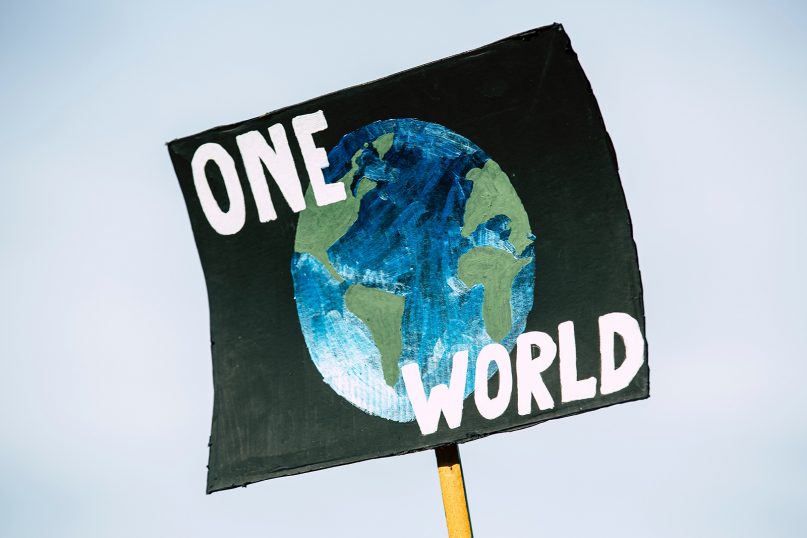(RNS) — For millions of young people around the world, this November’s COP26 meeting in Glasgow is deeply personal because it will help them determine if they should have children or not.
A large number have already joined the ranks of the BirthStrikers or GINKs (Green Inclination, No Kids), estimated by the Yale environmental scientist Matthew Schneider-Mayerson at about 12.5 million in the United States alone. In a recent survey of 10,000 young adults — ages 16-25 and representing 10 countries — 83% of respondents said adults have failed to care for the planet, 65% said governments are failing young people and 58% said they and future generations are being betrayed. More than half believe humanity is doomed.
For many of the young people I talk to, the climate crisis is not a far-off possibility but a present and existential threat that is closing the windows on their future prospects. They feel ignored, abandoned and betrayed by the adults charged with their care. They are marching, striking from schools and turning to the courts to protect the planet scientists tell us is becoming increasingly uninhabitable.
They are doing this because they know that children, especially those living in poorer countries, will bear the brunt of climate catastrophes. A recent report by UNICEF says 1 billion children already face “extremely high risk” from the effects of pollution and climate change and that a future with intensifying heatwaves, floods, fires, disease and drought is “unimaginably dire.”
These findings should be the source of considerable adult shame. It is a moral contradiction to claim to love one’s children while consenting to economic policies that degrade the world they must live in. If one of the hallmarks of a healthy culture is preparing young people to hope and work toward a vibrant future, then it can fairly be said that our dominant cultures are sick.
Our government and business leaders are failing young people by not acting out of the conviction that this world and all its life are sacred and, thus, worthy of our protection and care.
A sacred world isn’t divine or even perfect. It is instead a contingent and vulnerable realm in which each living being is a sacred gift. Children, bees, rivers and forests are gracious realities that, precisely by virtue of their gratuitous presence — what we might call their never-again-to-be-repeated existence — are good and beautiful. Engaging others as sacred means recognizing that we must be humble and kind before them. It means knowing that, as creatures imbued with sanctity, their being must not be violated.
This isn’t simply pious talk. If we believe life is sacred, we must commit to establishing policy priorities that communicate how precious all life is: food production that prioritizes nutrition and the health of land, plants and communities; well-funded schools and job-training facilities that consider the needs of the whole person; quality and affordable health care for everyone throughout their lifespans; safe and clean neighborhoods; dignified work that honors the sources and recipients of the work; and energy policies that take seriously the well-being of future generations.
When young people look around, they do not see oceans, farm fields, watersheds and urban neighborhoods treated with care and respect. Instead they see much of this world being commodified, mined for its wealth and then transformed into a dump to hold the poisons, plastics and garbage created by today’s production practices. When they see the exploitation of service and farmworkers, the hunger and substandard housing of children, the miseries and terrors of refugee existence, and the neglect of our infirm and elderly, they know human life is being treated as cheap and expendable.
If young people are to live in hope and believe in futures worthy of their talents and energies, they need to know they and this world are being treated with care and respect. To meet this crisis moment, we need a radical shift in economic and political priorities.
We need parents and grandparents to push their elected leaders to make meaningful and enforceable commitments when they gather at COP26 — commitments that will mitigate the “unimaginably dire” future that otherwise awaits all of us.
If adults want to regain young people’s trust and activate their hope, they should work very hard to cultivate a world in which life is gratefully received, carefully engaged and generously shared as the sacred gift that it is.
(Norman Wirzba is the Gilbert T. Rowe distinguished professor of theology and senior fellow at the Kenan Institute for Ethics at Duke University. He is the author, most recently, of This Sacred Life: Humanity’s Place in a Wounded World. The views expressed in this commentary do not necessarily reflect those of Religion News Service.)





